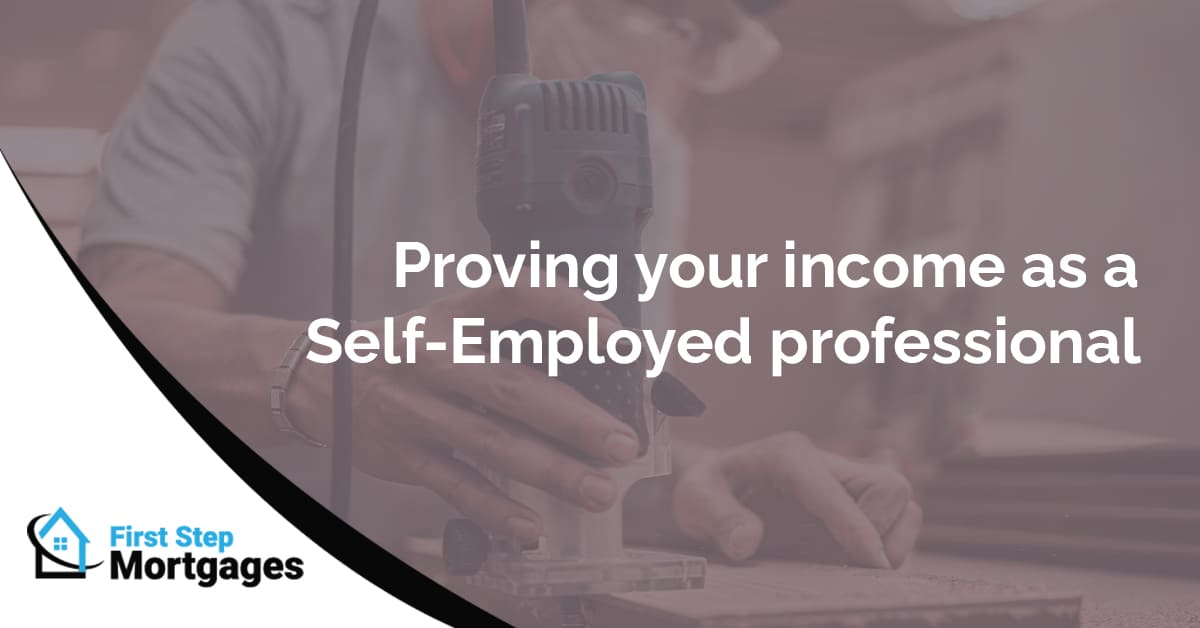Mortgage Companies Look-At Self Employed
-
Expert Mortgage Advisers
-
Exclusive Products Available
-
Access to Competitive Rates
Get In Touch Today To Discuss The Most Suitable Mortgage Option For You.
Get In Touch Today To Discuss The Most Suitable Mortgage Option For You.
Get a quick response within 24 hours

In order to be considered Self-Employed for the purposes of a mortgage application, you will need to earn the majority of your income through Self-Employed business activities. These include Sole Trader or freelance positions, Contractor roles and Limited Company Director. If you are a partner who owns more than 20% of your business, your income derived from this activity is also classed as Self-Employed income.
The percentage of UK workers who can be considered as Self-Employed has risen considerably in recent years. Despite this, Mortgage Lenders still perceive this form of income to offer less stability than the PAYE income. This means that your mortgage will be calculated slightly differently than it is for employed people and you will have to provide more documentation in support of your income.
The way that you prove your income will vary, based on the type of Self-Employed activity you carry out. In order to mitigate risk, most Mortgage Lenders will want to establish an average income over a period of time, usually two to three years of trading.
Sole Traders and freelance workers will need to provide sufficient evidence of their earnings over the lender’s specified duration. An average of their earnings for that duration will be considered their annual income for the purposes of the mortgage calculation. You will need to provide the following documentation as proof:
For Limited Company Directors lenders will calculate your mortgage based on an average of your personal salary and dividends over their required period. Some may be willing to consider the net business profits alongside your personal income. As a partner, your share of the net income will be used. In either case, the following is likely to be required:
Most Mortgage Lenders will use an average of your previous years of accounts, however if your income shows a continuous downwards trend, only your most recent year’s earnings will be used as your annual salary.
If you’re paid a day rate, some lenders will use an annualised figure based on that to calculate your average annual income. Whatever method is used, to prove your income, you will need:
Self-Certification mortgages have not been used for some time. They were discontinued in 2014 due to lenders over-extending borrower’s affordability. Self-Employed mortgage applicants now need to provide substantial evidence of their income, to prevent similar issues.
Other than the additional proof of income, there is no difference when applying for a mortgage as a Self-Employed or employed borrower. Self-Employed mortgage applicants will benefit from more substantial preparation in advance of their application and advice from Mortgage Brokers like First Step.
The best way to secure a mortgage as a Self-Employed applicant is to ensure that you are prepared before you apply. The following pre-application preparations will improve your chances of having your application approved:
Your accounts should be up to date and if you ordinarily file your own, signed off by a certified accountant for your mortgage application. You can also obtain SA302 tax returns and bank statements in advance.
If you take the time to save a more substantial deposit, you both will increase the mortgage options available to you, give you access to lower mortgage rates and improve your chances of acceptance.
Use an online credit score provider and if necessary, work on improving your credit rating, prior to your application by:
As Mortgage Brokers who specialise in helping Self-Employed applicants, we can help you find those lenders willing to consider your circumstances. Our knowledge of what each individual lender requires in support of your application means that we can help you prepare sufficiently, reducing the chance of rejection. We can ensure you’re accessing the most beneficial mortgage deals available for your personal financial and employment situation.
Your home may be repossessed if you do not keep up repayments on a mortgage
Monday – Friday 9:00 AM – 8:00 PM & Saturday – Sunday 10:00 AM – 6:00 PM